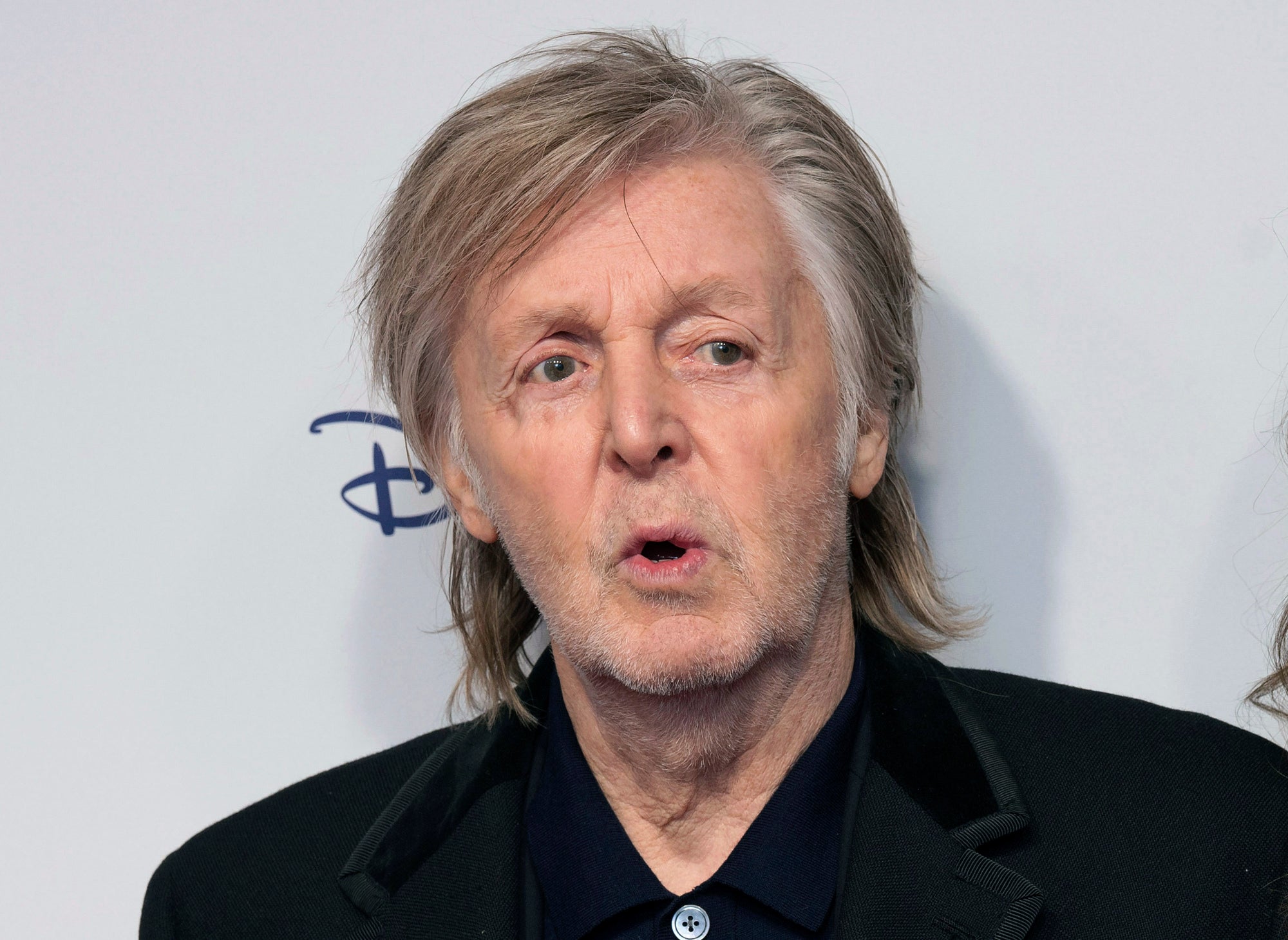Paul McCartney to ‘reunite’ with John Lennon on ‘final Beatles song’ thanks to AI
McCartney will sing in new recording alongside Lennon, who died in 1980
Your support helps us to tell the story
From reproductive rights to climate change to Big Tech, The Independent is on the ground when the story is developing. Whether it's investigating the financials of Elon Musk's pro-Trump PAC or producing our latest documentary, 'The A Word', which shines a light on the American women fighting for reproductive rights, we know how important it is to parse out the facts from the messaging.
At such a critical moment in US history, we need reporters on the ground. Your donation allows us to keep sending journalists to speak to both sides of the story.
The Independent is trusted by Americans across the entire political spectrum. And unlike many other quality news outlets, we choose not to lock Americans out of our reporting and analysis with paywalls. We believe quality journalism should be available to everyone, paid for by those who can afford it.
Your support makes all the difference.Paul McCartney has said that “the final Beatles song” will be released later this year.
The track will feature vocals by McCartney as well as John Lennon, whose voice has been stripped from an old demo by artificial intelligence. Lennon was killed in December 1980.
Speaking on BBC Radio 4’s Today, McCartney said: “We just finished it up and it’ll be released this year.”
The musician did not name the track, but it’s been suggested that the song could be “Now and Then”, which was written by Lennon in 1978.
In 1994, Lennon’s widow, Yoko Ono, sent the uncompleted song to McCartney; it featured on a tape recording Lennon labelled “For Paul”.
One year later, McCartney considered releasing “Now and Then” as a Beatles “reunion” song to mark the release of Anthology, a documentary and music project honouring the band.
Two other songs on the tape, “Real Love” and “Free as a Bird”, were selected instead, and were completed by ELO frontman Jeff Lynne. They were promoted as “new” Beatles songs.
McCartney seemingly turned to AI following the release of Peter Jackson’s Beatles documentary Get Back in 2021. For the three-part series, dialogue editor Emile de la Rey used computers to “extricate” voices from existing recordings.
“[Jackson] was able to extricate John’s voice from a ropey little bit of cassette,” McCartney said in a new interview.
“We had John’s voice and a piano and he could separate them with AI. They tell the machine, ‘That’s the voice. This is a guitar. Lose the guitar.’
Enjoy unlimited access to 100 million ad-free songs and podcasts with Amazon Music
Sign up now for a 30-day free trial
Enjoy unlimited access to 100 million ad-free songs and podcasts with Amazon Music
Sign up now for a 30-day free trial

“So when we came to to make what will be the last Beatles record, it was a demo that John had. We were able to take John’s voice and get it pure through this AI. Then we can mix the record, as you would normally do. So it gives you some sort of leeway.”
McCartney acknowleged that the use of AI is “kind of scary”, but added: “It’s the future. We’ll just have to see where that leads.”
In 1994, Lynne said of the initial attempts to record “Now and Then”: “It was one day – one afternoon, really – messing with it. The song had a chorus but is almost totally lacking in verses. We did the backing track, a rough go that we really didn’t finish.”
McCartney claimed that the song never got finished as George Harrison “didn’t like it”, telling Q Magazine: “The Beatles being a democracy, we didn’t do it.”

He said the verse featured in Lennon’s demo was “beautiful”. In 2012, McCartney said on documentary Mr Blue Sky: The Story of Jeff Lynne and ELO that he planned to “finish it one of these days”.
The musician is currently promoting a new book and National Portrait Gallery photography exhibition titled Eyes of the Storm, which features his own personal portraits taken during the Beatles’s rise to fame in the early 1960s.



Join our commenting forum
Join thought-provoking conversations, follow other Independent readers and see their replies
0Comments